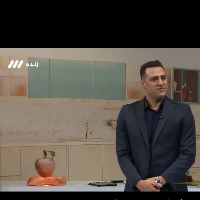The Effect of Transcranial Direct Current Stimulation with two Different Currents of Immersion in water
This study aimed to investigate the effects of cold-water immersion and transcranial direct current stimulation (TDCS) with the current intensities of 1 and 2 mA on recovery during the recovery period quality of subsequent performance of male swimmers.The research method was quasi-experimental, and the population was male swimmers over 18 years in Tehran city (n=20). They were randomly selected as a sample after successfully passing the lifeguard entrance test of 200m breaststroke less than 4 minutes in a time interval of 48hr in three days attended to participate in the games of 200m of frontal crawl with maximum intensity every day. Then, they performed one of the three protocols of Cold-Water Immersion (with 12°c), anodal stimulation (with the current intensity of 2mA), and anodal stimulation (with the current intensity of 1mA) for 15 minutes. The ratings of perceived exertion and feelings of swimmers were recorded using each recovery method by TQR and RPE questionnaires. To measure the effectiveness of the studied methods, the participants repeated 200m breaststroke with maximum intensity. To analyze the data, a dependent t-test, analysis of covariance was used.The results indicated that swimming performance significantly improved the TDCS group (with the current intensity of 2mA) (P = 0.001). The suitable current intensity of TDCS to affect reducing central fatigue and also recovery quality was better in the cold-water immersion group, and it could refer to the increase of venous return and excretion. In addition, the recovery quality was better in the cold-water immersion, and it could refer to the increase of venous return and excretion.
-
Effect of Eight Weeks of Interval Training Combined with Curcumin Consumption on Cardiac ERK1/2, PI3k and IL-18 Levels in Rats with Breast Cancer Treated with Doxorubicin
Narges Laghaei, Sedigheh Hosseinpourdelavar, *
Journal of Shaeed Sdoughi University of Medical Sciences Yazd, -
The effect of resistance training and zinc supplementation on TNF-α and CRP in the kidney tissue of rats following complete unilateral ureteral obstruction
Hossain Jokar, Sirous Farsi, *
Journal of practical studies of Biosciences in Sport, -
The Effect of 12 Weeks of Tai Chi Exercises on Static and Dynamic Balance in Children with Developmental Coordination Disorder
Vahid Jahani Ghavam, *
The Neuroscience Journal of Shefaye Khatam, -
Effectiveness of traditional and virtual reality exercises with physical literacy approach on motivation and acquisition of motor skills: a modern educational approach
Ahmad Mohammadi Moghaddam, *, Saba Yari
The Neuroscience Journal of Shefaye Khatam, -
The Effect of Water Immersion and Transcranial Direct Current Stimulation (TDCS) during Recovery Period on Changes in Blood Lactate and Subsequent Performance of Swimmers
Ali Molaei, Sedigheh Hosseinpour Delavar*, Ghahramani Mehran, Reza Jabbari,
Research in Sport Medicine and Technology,




